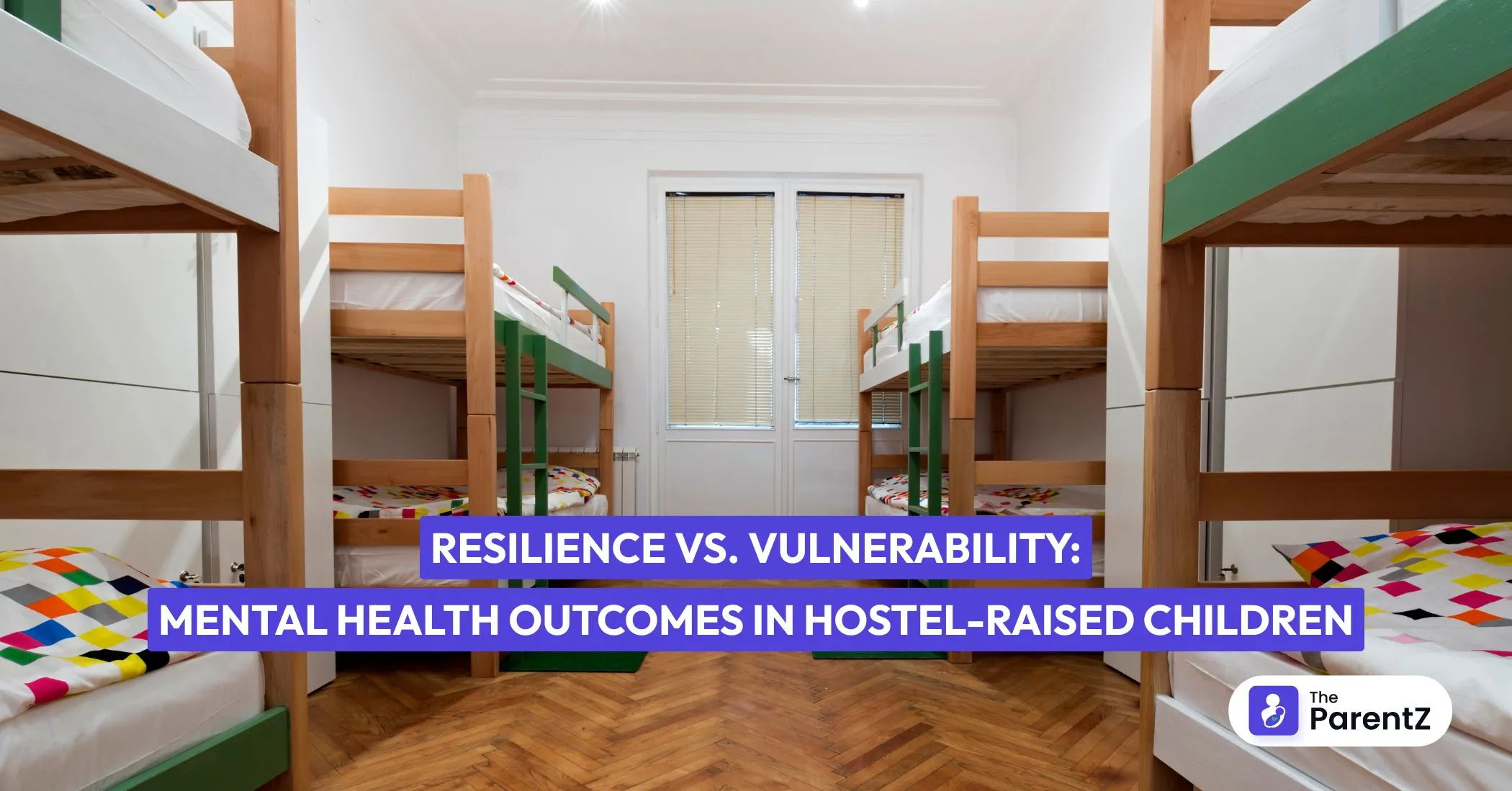Growing up in a hostel is a life-defining experience for many children. While it offers independence, routine, and exposure to diversity, it also introduces emotional challenges that can influence mental health in subtle but lasting ways. The outcomes can be broadly understood through two lenses: resilience and vulnerability.
Why do some children thrive in hostile environments, becoming confident, emotionally strong individuals, while others struggle with anxiety, loneliness, or identity issues? The answer lies in a complex interplay of temperament, support systems, coping mechanisms, and institutional culture.
Understanding Resilience in Hostel Life
Resilience is the ability to adapt and recover from stress, adversity, or emotional upheaval. Children who build resilience in hostels often show signs of:
- Emotional regulation despite being away from home
- Strong peer relationships that substitute familial support
- Problem-solving skills in daily routines and academic challenges
- Confidence and independence in managing their lives without direct parental presence
Several factors contribute to this positive outcome:
1. Supportive Environment:
Hostels that offer warmth, consistency, and access to trusted adults like empathetic wardens or counsellors help children feel safe. A sense of belonging promotes emotional stability.
2. Personality and Temperament:
Children with naturally adaptive temperaments, open communication styles, and emotional expressiveness tend to adjust better to hostel life.
3. Coping Skills Development:
Hostel life often demands time management, conflict resolution, and decision-making. Children who gradually learn these skills feel more in control, which buffers emotional stress.
4. Continued Parental Connection:
Regular visits, open conversations, and emotional availability from parents, even from a distance, help preserve attachment and reduce the sense of abandonment.
In such circumstances, hostel life becomes a launchpad for maturity and self-assurance.
Recognizing Vulnerability in Hostel Settings
Vulnerability arises when a child’s emotional needs are unmet, and they lack the tools or support to cope with the demands of hostel life. This can lead to a range of mental health concerns:
- Generalized Anxiety or Separation Anxiety
- Depressive symptoms, including sadness, social withdrawal, and lack of motivation
- Low self-esteem due to feelings of rejection or failure
- Behavioral issues, such as aggression, defiance, or rule-breaking
- Somatization physical symptoms like headaches or stomach aches with no medical cause
1. Emotional Isolation:
Children who do not find secure attachments within the hostel may feel chronically lonely. Without emotional outlets, they may internalize stress or act out.
2. Unmet Developmental Needs:
Emotional development in childhood relies heavily on validation, affection, and a sense of safety. A cold or overly disciplined hostel environment can inhibit emotional growth.
3. Comparison and Peer Pressure:
Competitive environments without emotional literacy can magnify stress. Children may struggle silently with performance anxiety, identity confusion, or a need for constant approval.
4. Lack of Coping Strategies:
Young children especially, may not know how to process complex feelings like homesickness, fear, or rejection. Without support, these emotions may become overwhelming.
Long-Term Mental Health Impacts
The mental health effects of early hostel life can persist into adolescence and adulthood:
- Attachment Patterns: Insecure attachment may result in difficulty forming close relationships or trusting others.
- Chronic Anxiety: Early stress without resolution may predispose children to anxiety disorders.
- Self-Concept Distortion: Constant pressure to perform or conform may affect self-image and self-worth.
- Emotional Avoidance: Children may learn to suppress emotions, leading to emotional numbness or burnout later in life.
However, these outcomes are not inevitable. Many hostel-raised individuals grow up with a strong sense of discipline, adaptability, and emotional insight, especially when mental health was prioritized.
Key Influencing Factors: Why Outcomes Differ
1. Age at Admission
Younger children (under 10) are more emotionally dependent and vulnerable to separation trauma. Older children may adapt better with maturity.
2. Quality of Hostel Environment
Hostels that encourage community, mentorship, and creativity foster healthier psychological outcomes. Overly rigid, impersonal, or punitive environments can do lasting harm.
3. Family Dynamics
If a child is sent to a hostel from a background of emotional neglect or family stress, the adjustment becomes harder. Conversely, children from emotionally secure homes may carry their inner sense of safety with them.
4. Gender and Cultural Factors
In many cultures, boys are expected to “tough it out” and not express emotions, which can delay help-seeking and worsen mental health outcomes. Girls may face additional anxiety from safety concerns or emotional pressure to perform.
How to Nurture Mental Health in Hostel-Raised Children
1. Emotional Check-Ins
Whether through calls, letters, or visits, parents should prioritize regular, meaningful conversations—beyond academics—to help children process feelings.
2. Train Hostel Staff in Child Psychology
Warden and staff training in empathy, child development, and mental health first aid can drastically improve children’s well-being.
3. Establish Safe Emotional Spaces
Hostels should create informal support systems like peer buddy programs, clubs, or counselling hours where students can open up without fear of judgment.
4. Foster Healthy Peer Interactions
Bullying, exclusion, and toxic competition must be actively monitored and prevented. Healthy peer relationships are central to emotional adjustment.
5. Normalise Help-Seeking
Mental health counselling should be visible, accessible, and destigmatized. Children should be taught that asking for emotional support is not weakness, it’s wisdom.
Conclusion: Balancing Strength with Sensitivity
The hostel is not merely a place, it is a parallel home for many children. How that space is shaped emotionally determines whether it becomes a nurturing ground for resilience or a silent space for emotional wounds.
Mental health outcomes in hostel-raised children are not binary. The same setting that cultivates strength in one child can trigger vulnerability in another. What makes the difference is support, empathy, and emotional visibility.
We must shift from asking children to “adjust” to asking ourselves how we can care better. Because no matter how independent we want our children to become, their emotional foundations still need tending with as much love and intentionality as we give to their academics or achievements.





Be the first one to comment on this story.